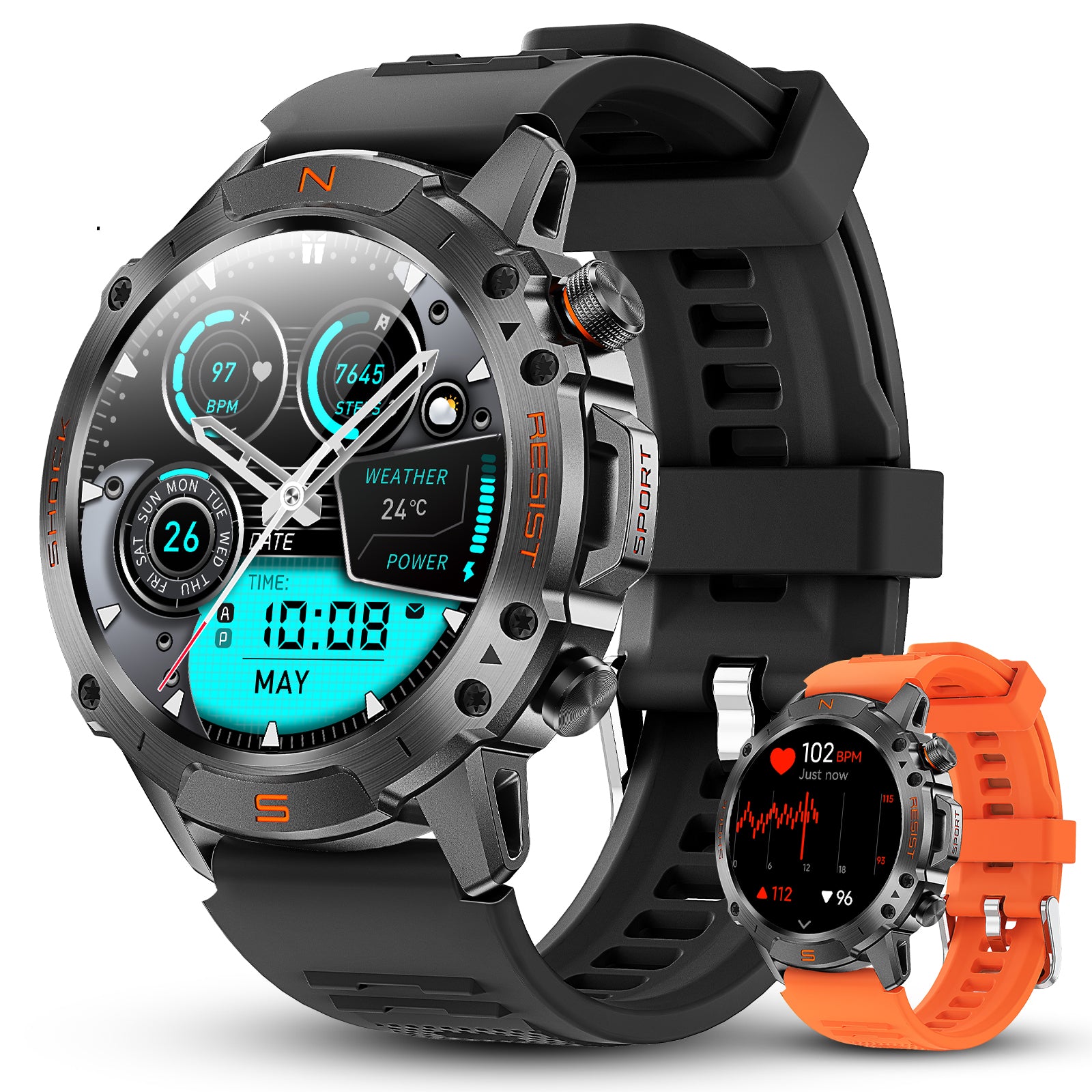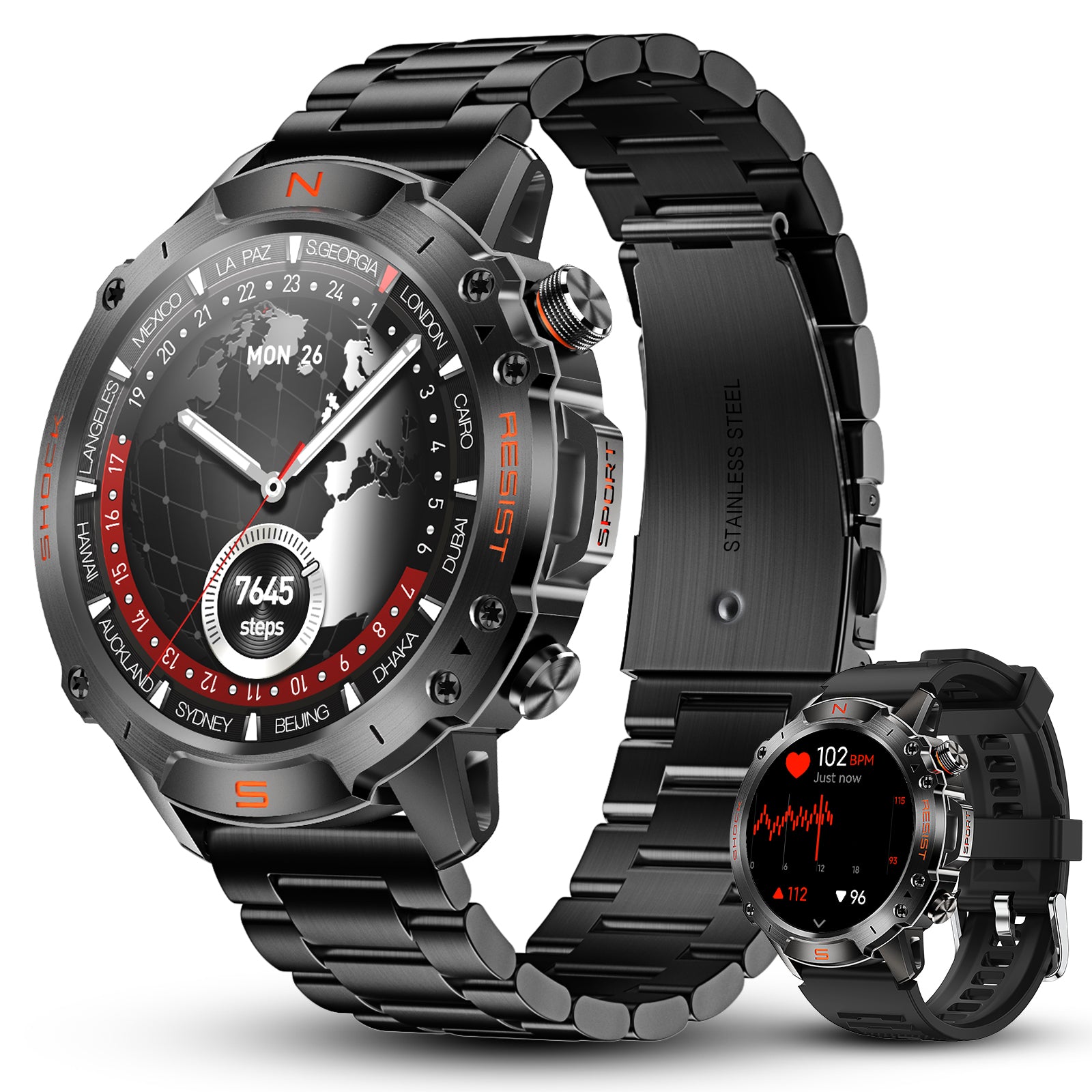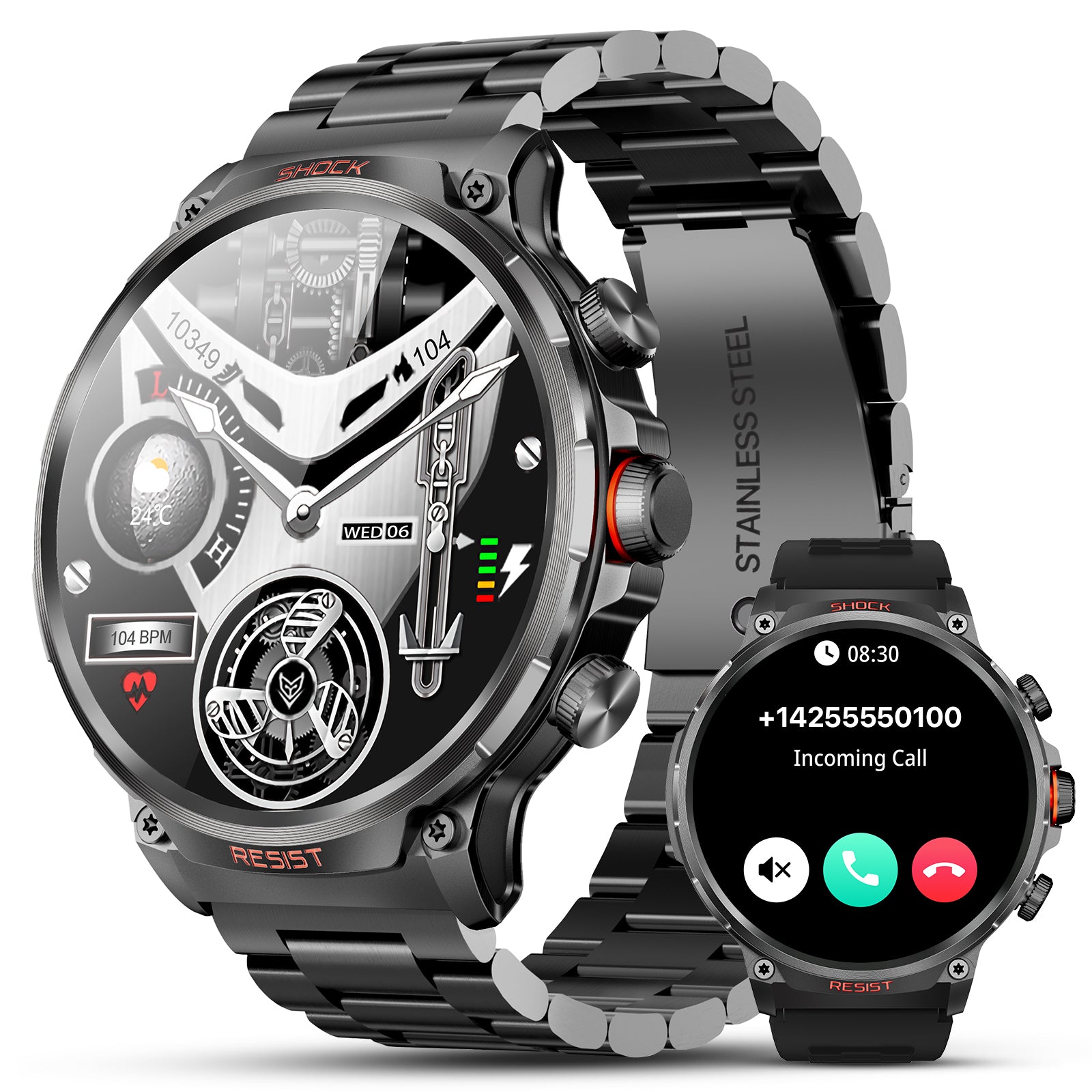You’ve put in the hours. The early mornings. The sore muscles. The endless drills and runs. Now it’s race day. You’ve checked your gear, tied your laces, and yet — your palms are sweaty, your chest feels tight, and your thoughts start racing faster than your legs ever could. Did you train enough? Are your legs even ready? What if you just can’t keep up?
Stress before competition isn’t a sign of weakness — it’s a natural response to pressure. But left unmanaged, it can sabotage your performance and hard-earned progress.
Enter the Walkerfit M6 Ultra, a smart performance tool that tracks your body’s hidden stress signals and helps you train, recover, and compete with clarity and confidence.
How Stress Undermines Sports Performance
That gut-wrenching nervousness before a big race or game is more than just a feeling — it’s your body activating its fight-or-flight response. While this system can sharpen your focus in small doses, too much stress quickly becomes counterproductive.
1. Cortisol: The Energy Drain You Didn’t Plan For
When stressed, your adrenal glands release cortisol and adrenaline. These hormones prime your body for action. But when overactivated during sports, they cause muscle stiffness, reduce flexibility, and drain your energy reserves prematurely.
2. Mental Fog and Second-Guessing
Stress doesn’t just wear you out physically — it clouds your mind. Under pressure, athletes often experience tunnel vision, struggle with quick decisions, and fall into negative self-talk loops. The competition then becomes less about others and more about battling your own doubts.
Related article:How Stress Impacts Athletic Performance and Recovery
The Ripple Effect of Chronic Stress
Stress doesn’t end at the finish line. It quietly affects your training, recovery, sleep, and even your immune system.
Training Efficiency Takes a Hit
Ever find it tough to concentrate during practice or learn a new skill? Chronic stress impairs memory and motor learning, making progress harder.
Fatigue, Illness, and Injury Risk
Stress weakens immunity and disrupts sleep cycles, increasing the likelihood of injuries and longer recovery times. This leads to a vicious cycle of declining performance.
Related article:3 Smart Ways to Adjust Your Sleep Routine
Practical Strategies to Manage Stress and Boost Performance
Recognizing stress is just the start. Managing it well requires a combination of mindset shifts and practical habits.
Talk It Out or Write It Down
Bottling stress intensifies it. Talking with coaches, teammates, or journaling your feelings helps externalize worries, lightening mental load.
Prioritize Active Recovery
Recovery isn’t just resting — it’s a strategic reset. Short walks, deep breathing, or light socializing can break the stress cycle.
Reframe Race-Day Nerves
Stress and excitement cause similar physiological responses. Reinterpreting nervous energy as readiness can transform anxiety into focus.
Control What You Can
Focus on preparation — sleep, nutrition, and mindset — rather than uncontrollable factors like competitors or weather.
Build Calm into Your Routine
Mindfulness, nature breaks, and short mental pauses help maintain emotional balance and resilience.
Sleep Well
Quality sleep underpins recovery and cognitive function. Improving sleep hygiene supports your body’s ability to handle stress.

How Walkerfit M6 Ultra Empowers You to Manage Stress and Perform at Your Best
Understanding stress is one thing — managing it effectively is another. This is where the Walkerfit M6 Ultra comes in as your intelligent training partner.
- Advanced Stress Monitoring: By measuring heart rate variability (HRV), resting heart rate, and skin temperature, the M6 Ultra detects subtle stress signals that often go unnoticed.
- Real-Time Alerts: Receive notifications when stress markers spike, prompting you to pause, breathe, and reset your mental state.
- Guided Breathing Exercises: Calming routines with vibration cues help you downregulate stress quickly, even in high-pressure moments.
- Sleep and Recovery Insights: Track your sleep quality, stages, and recovery status to optimize rest and prevent burnout.
- Training Load and Stress Trends: Visualize how stress fluctuates over days or weeks, enabling smarter training decisions.
- Customizable Mood and Stress Tags: Log your emotional state alongside physical data to identify stress triggers and effective coping strategies.
With the Walkerfit M6 Ultra, you’re not just guessing how stressed you are — you’re seeing the data clearly and taking actionable steps to maintain peak performance.

FAQs
Q1: How does the Walkerfit M6 Ultra help monitor stress during exercise?
A1: The M6 Ultra tracks heart rate variability (HRV) and other key metrics to detect stress levels in real time, helping you recognize when stress might affect your performance.
Q2: Can the sleep tracking feature improve my athletic recovery?
A2: Yes, by monitoring your sleep quality and patterns, the M6 Ultra helps you understand how well you’re recovering, which is essential for better performance and injury prevention.
Q3: How can I use the Walkerfit M6 Ultra to manage stress alongside training?
A3: The watch provides stress trend data and recovery insights, plus guided breathing exercises to help you manage stress and optimize your training schedule.
Final Thoughts: Stress Happens — But It Doesn’t Have to Win
Stress is a natural part of sport and life, but it doesn’t have to control you or your results. By understanding the physical and mental impacts of stress and applying effective coping strategies, you can reclaim control over your performance.
Pairing this knowledge with the right tools — like the Walkerfit M6 Ultra — turns stress from a silent saboteur into a manageable challenge. Train your mind as diligently as you train your body, and watch your potential unfold.
Available now on the official WalkerFit website or Amazon.









Leave a comment
All comments are moderated before being published.
This site is protected by hCaptcha and the hCaptcha Privacy Policy and Terms of Service apply.